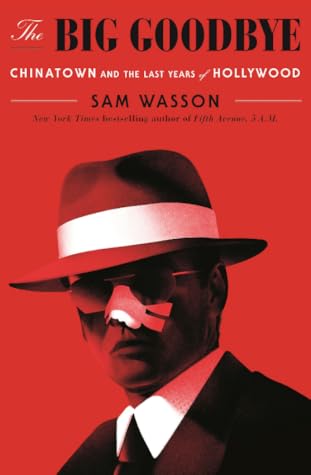More on this book
Community
Kindle Notes & Highlights
by
Sam Wasson
Read between
July 5 - July 19, 2020
The Daisy was good, happy fun and, after hosting a fund-raiser for the Student Nonviolent Coordinating Committee, “underscored an interesting change in Hollywood mores,” Peter Bart reported in The New York Times, “namely, that it is becoming stylish in the movie colony to be a liberal thinker,” barely possible in the previous generation, when moguls kept their stars’ public images on a tight leash. But since the end of the Hollywood blacklist shamed those who stayed silent, Bart observed, it was no longer considered gauche in Hollywood to talk politics; it was gauche not to.
“It was the ending,” Towne would say. “There were so many, but that was the end of the Sixties. The door closed, the curtain dropped, and nothing and no one was ever the same.”
“Well, that’s pretty much what we’re told to do in Chinatown, is nothing. Because with the different tongs, the language and everything else, we can’t tell whether we’re helping somebody commit a crime or prevent one. So, we just … we do nothing.”
“When a crime can no longer contain or content itself with the past,” Towne said, “and insists on visiting the future it’s no longer a crime—it becomes a sin, and very difficult to punish.” A crime that happened, that is happening, right in front of our eyes.
“I have no regrets,” he would write, “about having missed that semi-fabled epoch when men were men, women women, and writers rogues, but I increasingly feel—I suspect we all do—that the history of life on earth is not one of evolution so much as devolution. With each succeeding generation we get weaker and smaller; the Titans are always in the past.”
Ask the Dust, John Fante’s hymn to the vanished Bunker Hill and the dreams of rookie writers, put the city in his ear. He said, “If there’s a better piece of fiction written about L.A., I don’t know about it.”
But the bad guys would thrive. Forget it; they always would. “And, in a sense,” Towne said, “that was the point. There are some crimes for which you get punished, and there are some crimes that our society isn’t equipped to punish, and so we reward the criminals. In this case, greedy men displaced a whole community and took the land. So there’s really nothing to do but put their names on plaques and make them pillars of the community.”
“We were shooting the my sister/my daughter scene,” Koch said, “and next door on the next stage [John] Schlesinger was shooting the premiere scene from Day of the Locust. And right across the street, Coppola and Al [Pacino] were shooting the Senate hearing room for Godfather II, and we all broke for lunch at the same time. And I remember, you know, like in Sunset Blvd. where you see all the extras walking down the street. Well, it was Jack and Faye and Al and Schlesinger and Coppola and Polanski walking down the street to the old Paramount commissary. And I thought, wow, I’m in Hollywood.”
Chinatown is a condition. The condition is the terrible awareness of one’s helplessness, what Towne had always called “the futility of good intentions.”
In a memo Eisner would circulate through Paramount, he wrote: “We have no obligation to make history. We have no obligation to make art. We have no obligation to make a statement. To make money is our only objective.”


